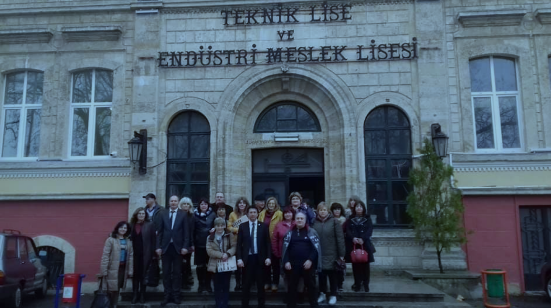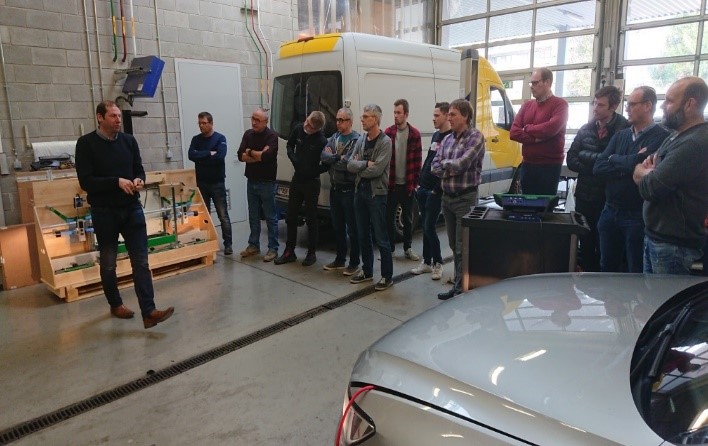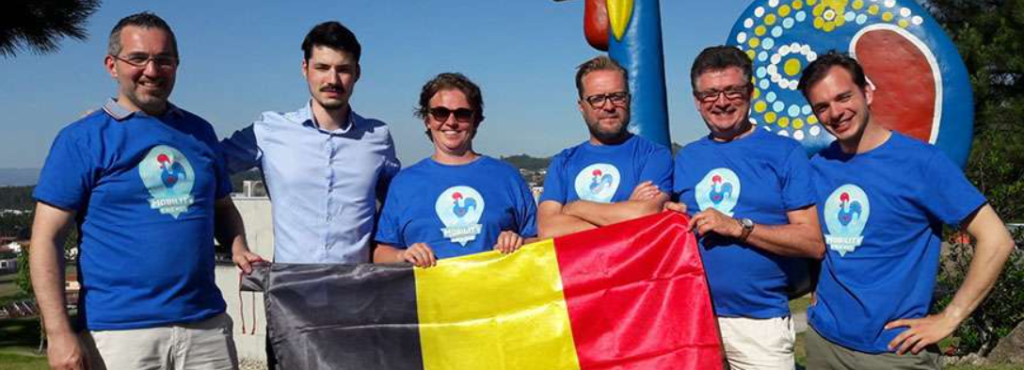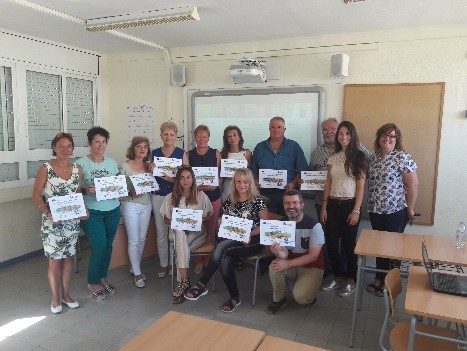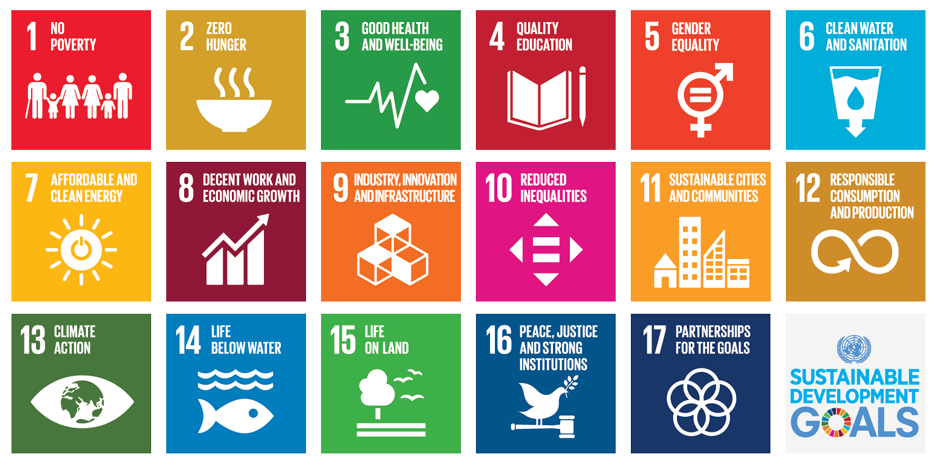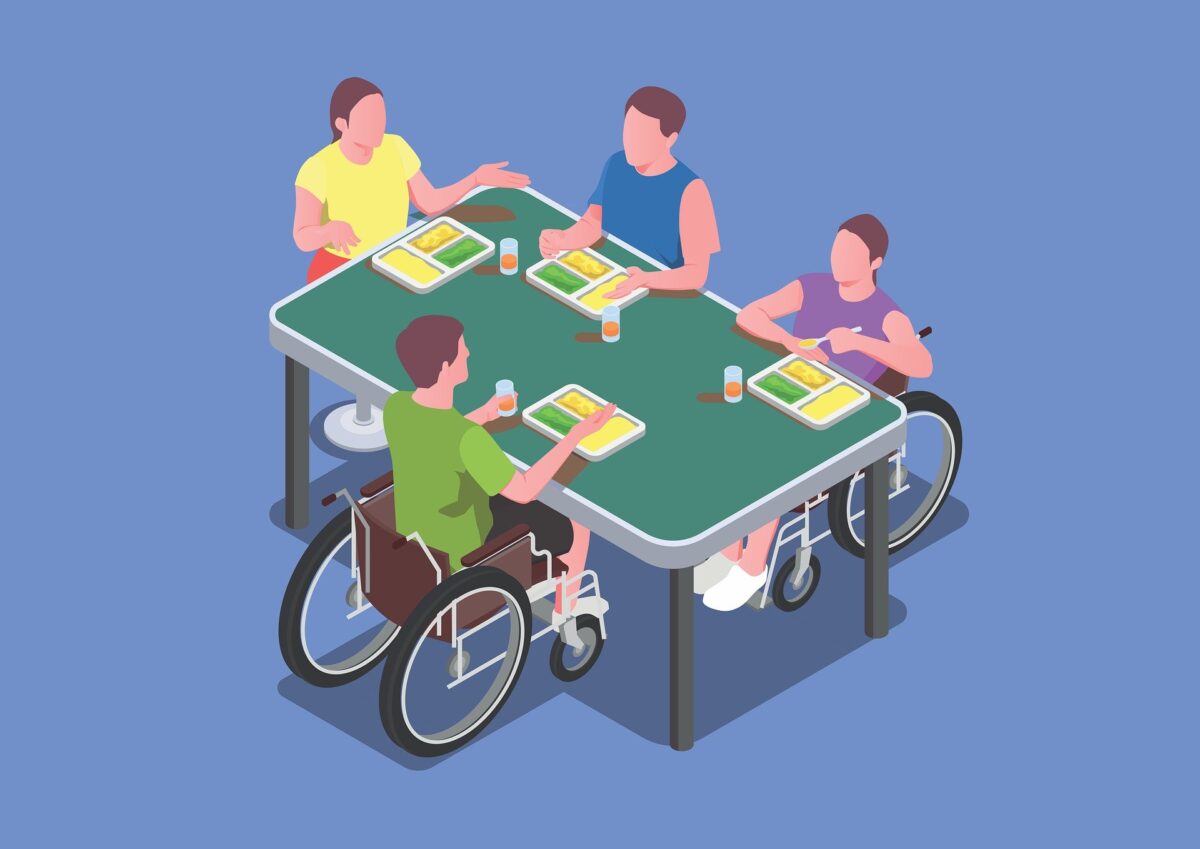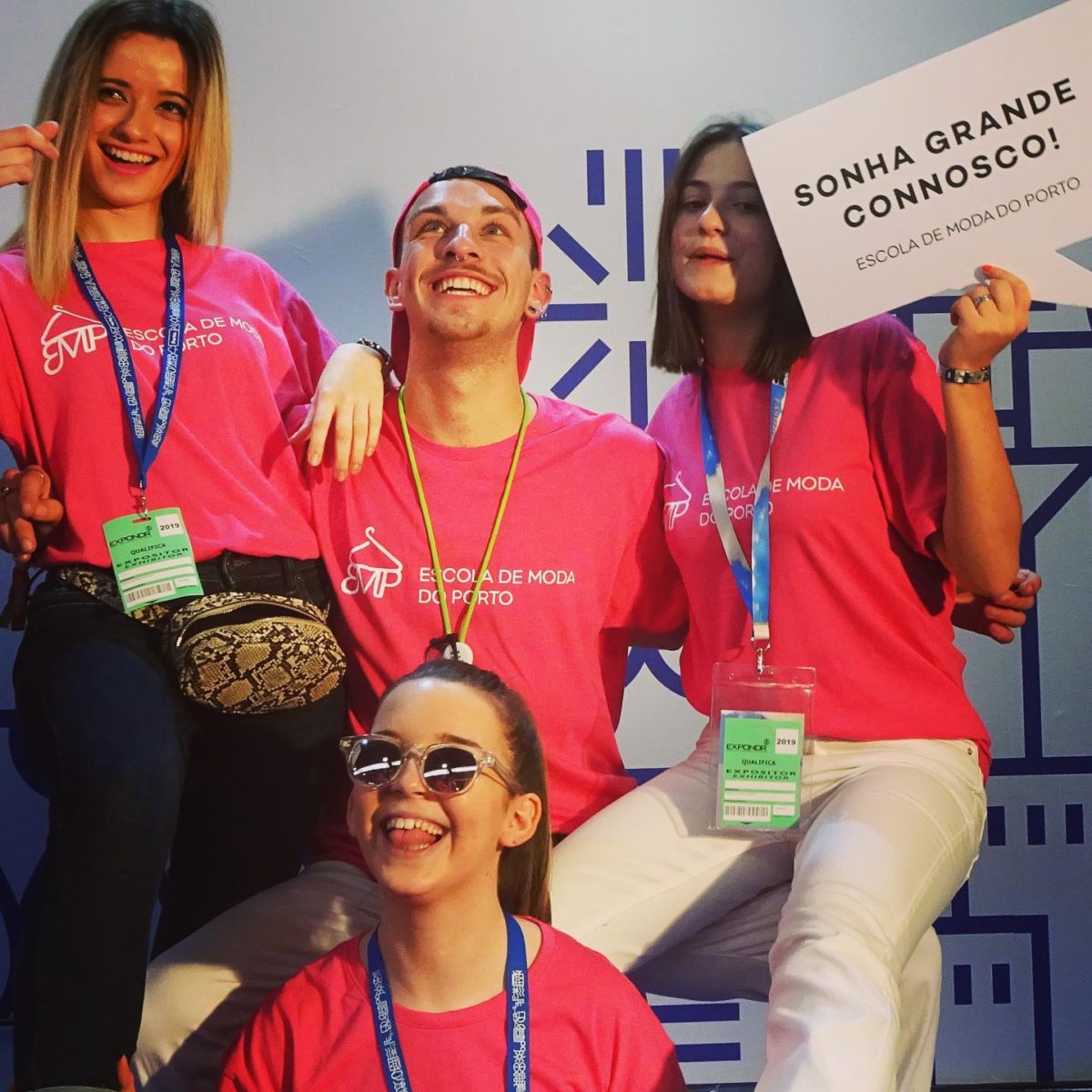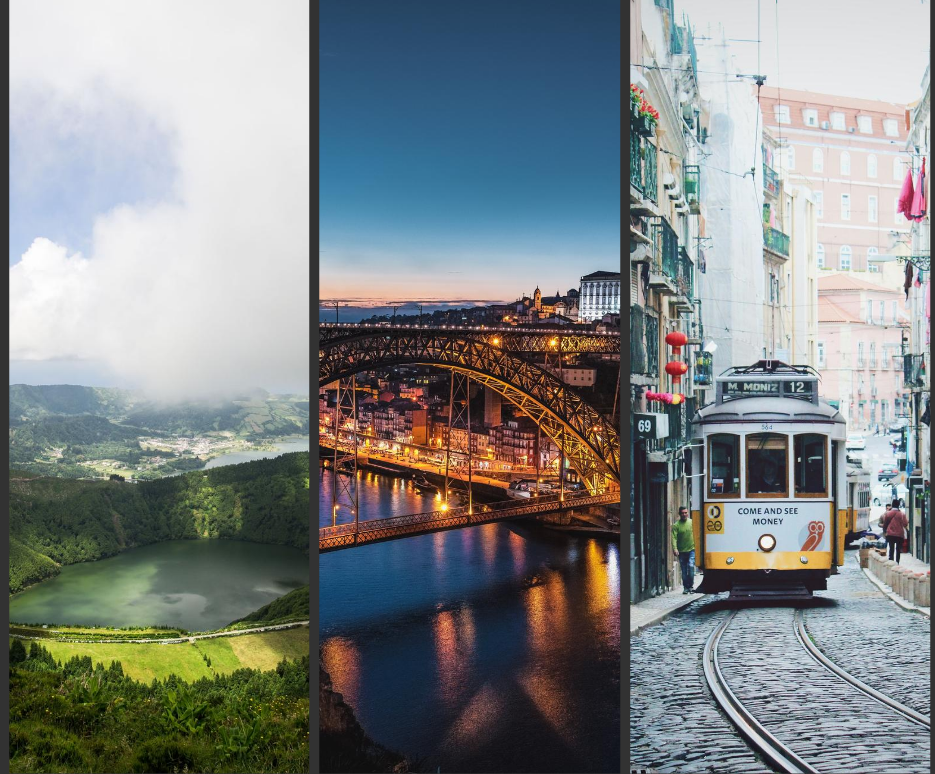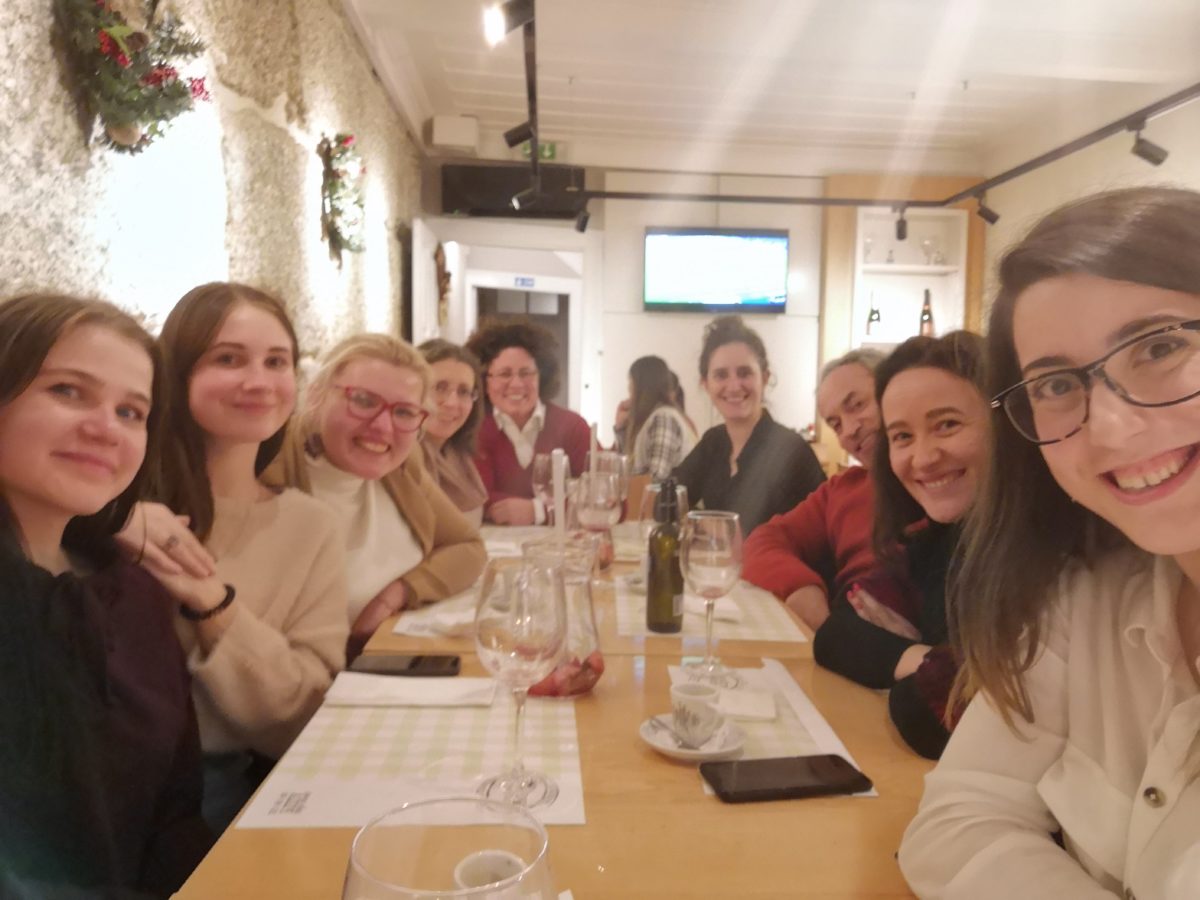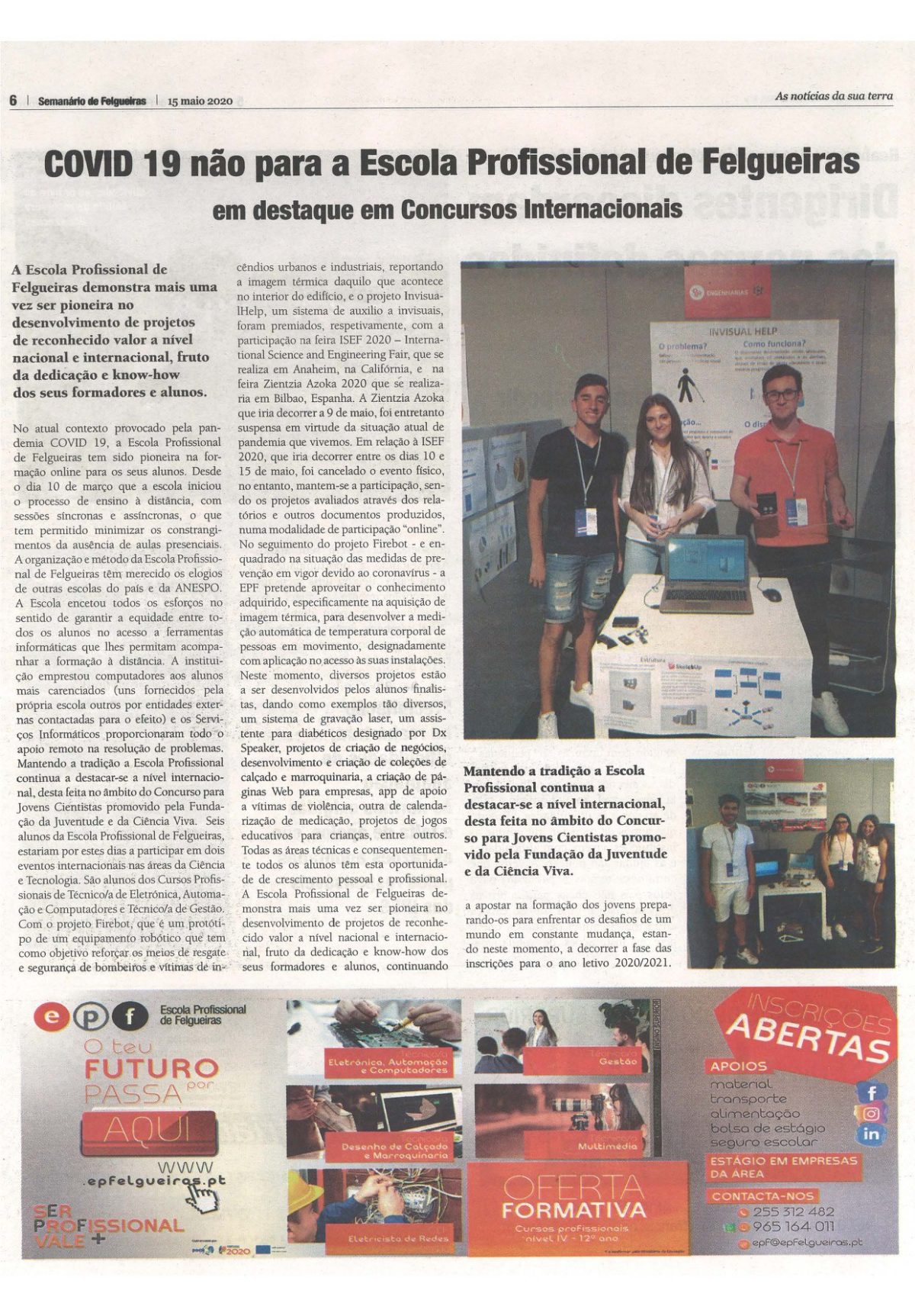The Summer is here and with it came the desire to go out, to visit and see different places. Portugal has the privilege to have a magnificent diversity of landscapes, a rich cultural heritage, a delicious cuisine and a unique combination between tradition and contemporaneity. In spite of being a small country, Portugal has so much to see and explore that it would be impossible to choose a single region or city.
Our National Network of VET Schools already extends throughout the country. We have schools located in big cities and smaller towns, and in all of them there are fantastic things to discover. So, we ask all of our schools from the network to choose a place in the cities of their schools to visit, and we gather all the suggestions in the list below.
Caminha
We will start well up north. COOPETAPE – Teaching Cooperative is located in Caminha, a border town of the district of Viana do Castelo. Characterized by its vast cultural and natural heritage, Caminha tells the story of Portugal through its Castle and walls, its churches, its cobblestones, its narrow streets, and its romantic corners. Here in Caminha, we highlight the emblematic Clock Tower. Classified as a national monument, this tower is currently the only remaining tower of the medieval walls of the village. In 2008, it was rehabilitated and reopened to the public with the Museological Nucleus of the Historical Centre of Caminha. A journey through the history of the village of Caminha.
Fafe
Next, to the Room of Visits of Minho, or Fafe. Home to the School Group of Fafe, the city is located between the rivers of Vizela Ferro and has a lot to offer, from its gastronomy, through its cultural heritage to its superb natural beauty. Here, the “Casa do Penedo” is worth highlighting. At the top of mountain of Fafe, 10 km from the city centre, we can find a small and curious rural house built among four huge rocks. The also known as the “House of the Flinstones“, is surrounded by silence, nature and tranquillity. Its interior follows the same natural lines, with all rooms taking unique forms, furnished with stone and solid wood objects, with no running water and no electricity. Certainly, a unique visit!
Guimarães
Right next to Fafe, we find Guimarães, where two schools from our National Network are located: Francisco de Holanda Secondary School and Vocational School Bento Jesus Caraça Guimarães. It is the cradle city of Portugal, where D. Afonso Henriques, the first King of Portugal, was born. The historic centre, an area within the city walls, is associated with the formation and identity of the country and was classified as a UNESCO World Heritage Site in 2001. In this mythical city we will highlight two places of great interest: the CAAA and the Library of Martins Sarmento Society. The Centre for the Affairs of Art and Architecture (CAAA) is located in an old textile factory, in the centre of Guimarães, which was recovered to welcome this centre. It is a non-profit cultural institution that supports artistic creation and interaction between numerous artistic areas – visual arts, design, cinema, literature, multimedia and performing arts – and architecture. Also in the city centre is the Martins Sarmento Museum, where the magical library is located. This magical place has more than 100 000 books, among which we can find the first edition of “Os Lusíadas” by Luís de Camões, the masterpiece of the Portuguese Literature. A mandatory stop for art lovers!
Felgueiras e Lixa
We continue our trip through the North of Portugal and stop at two small towns, Felgueiras and Lixa. Here we have three schools from our National Network: Vocational School of Felgueiras and the Secondary School of Felgueiras, both in Felgueiras; and the School Group of Lixa, in Lixa. The cultural and gastronomic heritage of the municipality is truly rich and diverse. We highlight the Monastery of Santa Maria de Pombeiro and the House Museum of Pão de Ló. The Monastery of Santa Maria de Pombeiro is one of the oldest monastic institutions in Portugal and has been documented since 853. It is considered the maximum expression of the remote origins and cultural richness of the lands, being classified as a national monument since 1910. And since we’re in this region, why not try the famous “famoso Pão de Ló de Margaride”? This delicious cake has about 300 years of tradition and has been served at the table of the Portuguese Royal Family since the 19th century. Nowadays, we can visit, watch and participate in the confection of this magnificent Portuguese delicacy at House Museum of Pão de Ló. It is certainly a delicious stop!
Matosinhos
Now we go to the Portuguese coast. EPROMAT – Vocational School of Matosinhos is located in Matosinhos, where gastronomy, contemporary architecture and the immense maritime coast are inescapable charms. The Porto Cruise Terminal was inaugurated on July 24, 2015 and has already received more than 300 thousand passengers and 500 ships. The Port of Leixões has a privileged position in the context of the European port system and intends to link the activity of cruises and the urban integration, associated with increasing sociability with the surrounding population. The Porto Cruise Terminal is an important gateway to the region and was recognized in 2017 by ArchDaily with the building of the year award in the “Public Architecture” category.
Porto
Continuing along the coast, we arrived in Porto, a fascinating, charming city full of a rich history and culture. It is home to four schools from our National Network: Vocational School Bento Jesus Caraça Porto, Porto Fashion School, Art and Vocational School Árvore, and Teaching Cooperative Vocational School of the Youth Center of Campanhã. In Porto, we will highlight two magnificent places: the Natural History and Science Museum of the University of Porto and the “Palácio da Bolsa”. Located in the Botanical Garden of Porto, the Natural History and Science Museum of the University of Porto was established in 2015. Its main focus is the preservation, enhancement, study and dissemination of the vast heritage associated with the natural sciences, both exact and human, built through the educational and research activities developed within the University of Porto over more than two centuries. Also in the centre of the city we find “Palácio da Bolsa”, one of the city’s most emblematic monuments, both for its historical and cultural context and its privileged location. It is the headquarters of the “Associação Comercial do Porto” and hosts the most diverse cultural, social and political events of the city.
Espinho
A little over 20 minutes from Porto, we find Espinho and the Vocational School of Espinho. The city is known for the quiet beaches and its immense blue sea. In this area of election in the North of Portugal, we highlight the Municipal Museum of Espinho. Located in the Forum of Art and Culture of Espinho, former canning factory “Brandão, Gomes & C.ª”, the museum consists of two permanent exhibitions – Brandão, Gomes & C.ª and Xávega Art – and of the temporary exhibition galleries Amadeo de Souza-Cardoso. Every year, it receives exhibitions of drawing, painting, sculpture and documentary and also several projects related to the preservation, promotion and dissemination of the local historical heritage and plastic arts, including art residencies, the International Biennial Women of Arts and the CriArte.
Arrifana
Arriving to the centre of Portugal we find Arrifana, a small town from the municipality of Santa Maria da Feira. Here is located Arrifana’s School Group. Arrifana is characterized by being a resplendent and prosperous town, with a secular history and a great pride in its historical roots. One of the most important historical landmarks of the area is the Monument to the Martyrs of the Peninsular War. This monument, besides being a great part of the identity of Arrifana, is also an important part of the Portuguese history. The event that this monument represents is the massacre of Arrifana during the French Invasions. A French marshal was killed during an ambush and Arrifana was handed over to custody of the fire. The population took refuge in the church, but still several men were shot on April 17, 1809. A mandatory stop to know a little more about Portugal.
Elvas
From the centre of Portugal, we go to Alentejo, more specifically Elvas, where we can find the School Group nº 3 of Elvas – Secondary School D. Sancho II. This city from Alentejo was classified by UNESCO in 2012 as a World Heritage Site for being a border and garrison city and for its fortifications. It houses the largest fortification in the world, has a religious heritage with about 40 churches and convents, and the military buildings are more than 20. Among the museums, megalithic and archaeological monuments, and architectural heritage disseminated throughout the city, it is very easy to understand why Elvas is so emblematic. We decided to highlight “Forte da Graça”. This splendid and grand building is a remarkable example of 18th century military architecture and is considered by many historians to be one of the most powerful fortresses in the world. This stop would be an exciting visit to the past!
Ponta Delgada, Açores
And so we reach the islands. The school from our National Network, EPROSEC – Vocational School, is located in the city of Ponta Delgada, in the largest island of the Azores archipelago, the island of São Miguel. In the centre of Ponta Delgada there are many great architectural marks, scattered along its narrow and flat streets and contrasting with all the natural splendour that the island has to offer. About 17 km from Ponta Delgada is the magnificent Viewpoint of Boca do Inferno, which is surrounded by a breathtaking wild and natural landscape. Here you can enjoy beautiful views over the Seven Cities Lagoon, Santiago Lagoon, Rasa Lagoon, and Canary Lagoon. Without a doubt, one of the most spectacular places to visit.
Funchal, Madeira
The last stop is in the city of Funchal, in Madeira. With an urban and even sophisticated character, the capital of the island offers an involving and charming historical context, where a sovereign landscape between the sea and the majestic mountains dominates. As a highlight in the wonderful city of Funchal, our Institute for Qualification IP-RAM suggests a visit to the “Jardim Monte Palace”, in the parish of Monte. The journey to this garden can be made by cable car, from the Old Town to Monte. At the “Jardim Monte Palace” you can observe and enjoy a space dedicated to the Madeiran flora, with a large part of the Macaronesian Laurissilva varieties, as well as many other endangered species. As a return trip to the city, we suggest you to go down in the Basket Carts or Toboggans – a unique transport in the world!
